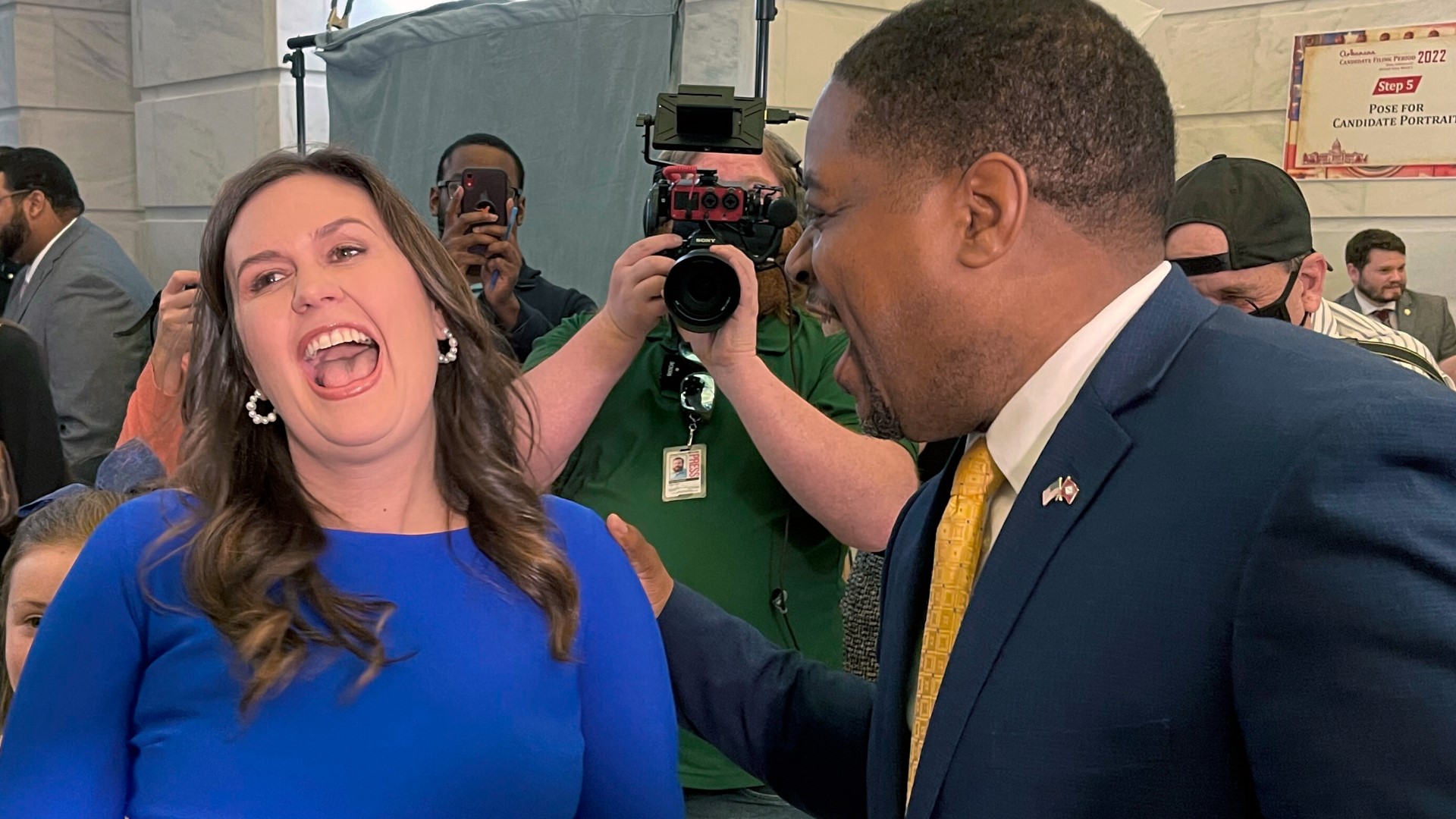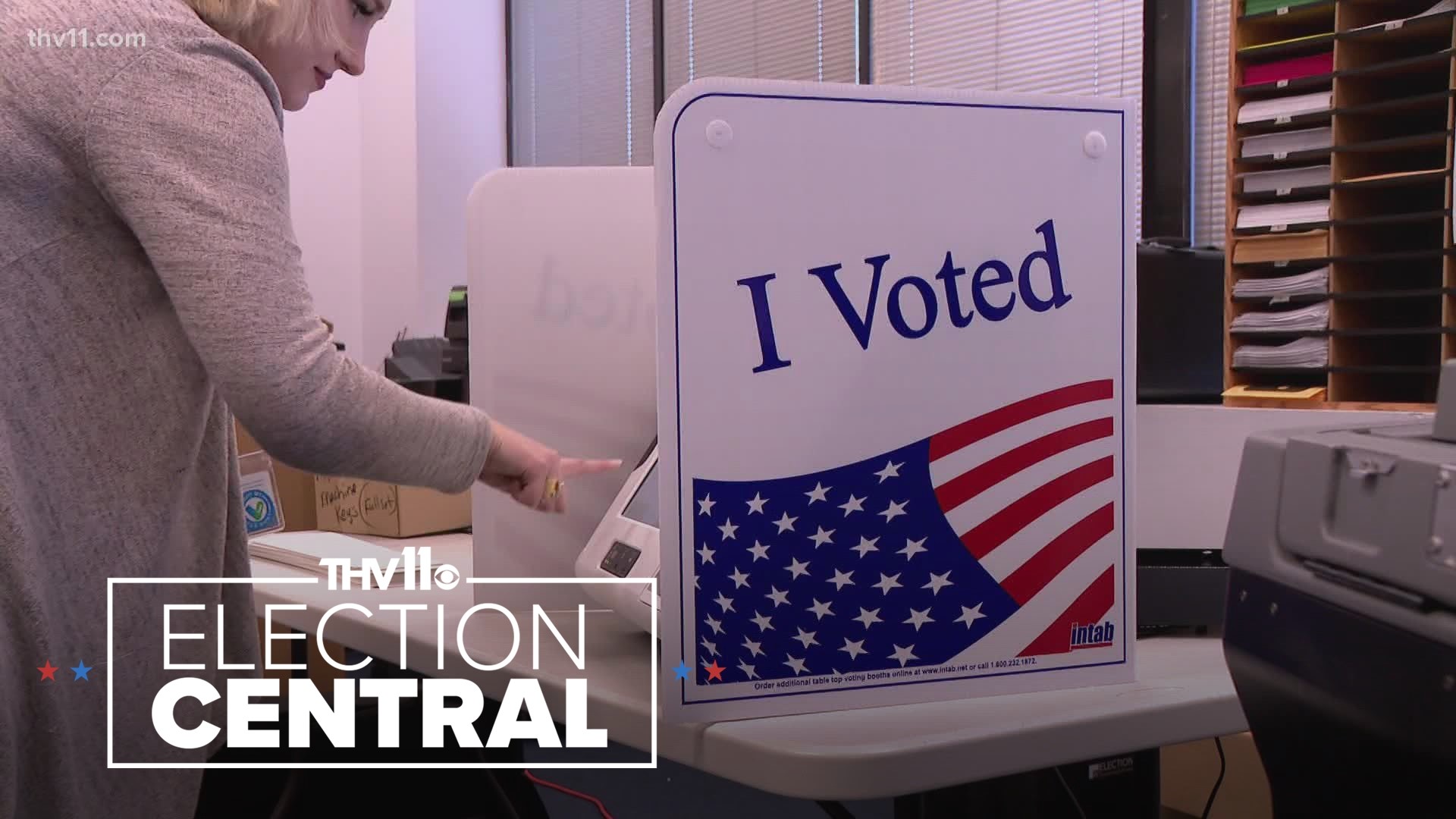Arkansas voter guide for 2022 elections
From the historic governor race to voting on recreational marijuana, here's all of the information you'll need for the upcoming 2022 elections in Arkansas.

Arkansans are set to cast their votes for the 2022 midterm elections on Tuesday, November 8. Below, you can find everything you need to know about candidates, ballot issues, voting, and other key dates in Arkansas.
In this article, you’ll find information on:
- Voting deadlines
- Key races in Arkansas
- Ballot measures in Arkansas
- Where you can find election results
How to vote
Voters in Arkansas can begin early voting on Monday, Oct. 24 and will be able to do so until Monday, Nov. 7.
During that period, people can vote either in-person or by absentee ballot.
The deadline to register and submit an absentee ballot is Friday, Nov. 4.
On election day, polls will officially close at 7:30 p.m., but if you are still in line you are legally allowed to still cast a ballot.
If you didn't register to vote by October 11, you will not be eligible to vote in the 2022 elections.
Key races to watch
Arkansas governor race
Democratic nominee Chris Jones will be running against Republican candidate Sarah Huckabee Sanders and Libertarian Ricky Dale Harrington Jr.
The race to become 47th governor of Arkansas will be historic. Either Arkansas will elect its first woman or Black man as Arkansas governor.
Latest polling shows that Sanders with an 11-point lead over Jones.
The three main governor candidates are set to debate on October 21 as part of the Arkansas PBS debates.
There are also four write-in independent candidates.
Little Rock mayoral race
Incumbent Frank Scott Jr. will be running against businessman Steve Landers. The two will also face Greg Henderson and Glen Schwarz.
Scott and Landers, the two front runners in the race, have made headlines leading up to the election. The current mayor has been questioned for his handling of LITFest while Landers admitted to leaving his gun at a local restaurant.
Both have made it a priority to discuss how they will handle the violent crime in Little Rock.
U.S. Senate race
Republican Sen. John Boozman will be running against for Democratic candidate Natalie James and Libertarian candidate Kenneth Cates in the U.S. Senate race.
Boozman has achieved at least 57% of the vote in 2010 and 2016.
Both James and Boozman won their respective primaries with 54% and 58% of the vote.
Lieutenant Governor race
Current Attorney General Leslie Rutledge (R) will be facing off against Democratic candidate Kelly Krout and Libertarian candidate Frank Gilbert.
Rutledge has been in the news recently after an interview with Jon Stewart regarding the state's ban on gender-confirming care.
U.S. House races
First Congressional District
Incumbent Republican Rick Crawford is running against Democratic candidate Monte Hodges and Independent candidate Roger Daugherty.
Second Congressional District
Incumbent Republican French Hill is running against Democratic nominee Quintessa Hathaway and Libertarian nominee Michael White.
Hill has held his seat since 2014 and has since been reelected three times, with the most recent being in 2020.
Third Congressional District
Incumbent Steve Womack is representing the Republican party and will be facing Democratic nominee Lauren Mallett-Hays and Libertarian nominee Michael Kalagias.
Fourth Congressional District
Incumbent Bruce Westerman will be representing the Republican party and will be facing John White of the Democratic party and Libertarian Gregory Maxwell.
Ballot measures
Issue 1: Special session
This proposed measure would allow members of the state legislature to call themselves into special sessions under certain conditions.
A recent Talk Business & Politics survey showed that 41% support the issue while roughly 35% are undecided on it.
Read the text of the full issue here.
What does your vote mean?
For: Your voting will allow state legislators to call themselves into special sessions and to set the agenda.
Against: You're voting against the state legislature having the ability to call itself into special sessions and set the agenda.
Issue 2: Supermajority
This measure would require a 60% supermajority vote of approval in reference to constitutional amendments and statutes to be adopted.
Current law allows a ballot measure to pass with a majority of votes, also known as "50% plus one vote."
Polling shows that 36% are undecided on the proposal, while 32% support and 32% oppose the measure.
Read the full issue here.
What does your vote mean?
For: Your vote will support changing to the 60% voter supermajority whenever a vote of approval is needed for constitutional amendments and new laws.
Against: You’re voting against the requirement of a 60% voter supermajority whenever a vote of approval is needed.
Issue 3: Religious freedom
An amendment to the Arkansas Constitution preventing the government from “burdening” a person’s religious freedom.
It would ban state and local government bodies from "burdening the practice of religion" unless the government can prove a compelling reason to do so.
Similarly to Issue 2, voters are almost evenly between for, against, and undecided. Around 34% oppose the measure while 33% are undecided and 32% support it.
Read the full issue here.
What does your vote mean?
For: Your vote goes towards amending the state constitution to block the state and local governments from burdening the practice of any religion.
Against: Your vote is in against amending the Arkansas constitution to block the government from burdening the practice of any religion.
Issue 4: Marijuana
This measure would legalize the recreational use and commercial sale of marijuana to those 21 and older.
In 2016, 53% of Arkansans voted to legalize the medical use of marijuana. This proposal would amend that amendment to provide for recreational use and allow cultivators and dispensaries to sell recreational marijuana.
A recent poll showed that nearly 60% would vote for the legalization of recreational marijuana usage.
Read the full issue here.
What does your vote mean?
For: Your vote goes towards supporting the possession and usage of recreational marijuana by those that are over the age of 21.
Against: You’re voting against the possession and usage of recreational marijuana by those that are over the age of 21.
Election results
You can click here to view the live results from the elections on Nov. 8.


